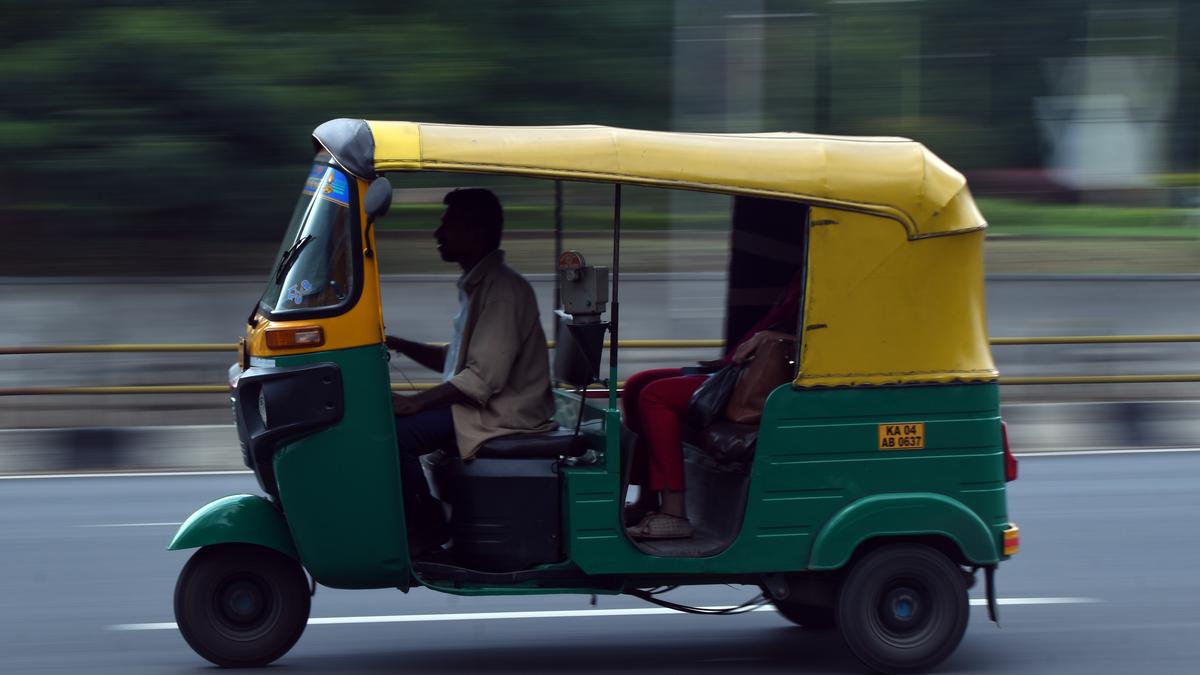
What is a fair fare?
The Hindu
Autorickshaw drivers in Bengaluru demand fare revision due to rising expenses, resorting to aggregator apps despite high commissions.
“It’s becoming impossible to make ends meet. The last fare revision was three years ago, and since then, everything has become more expensive — fuel, spare parts, and my basic living expenses. But our fares? Still the same!” laments Shashidhar K., an autorickshaw driver from Hulimavu in south Bengaluru. Frustration is palpable in his voice as he describes the ever-increasing financial strain.
“We have no choice but to stop using the meters and set our fares or rely on aggregator apps. Although these apps charge us a hefty commission, at least the fares we get are better compared to the standard meter rates,” he adds.
This sentiment is echoed by thousands of autorickshaw drivers across Bengaluru, who are urging the State government to increase the minimum fare, which was last revised on December 20, 2021.
The Auto Rickshaw Drivers’ Union (ARDU) has been vocal about the need for a fare revision. T.M. Rudramurthy, a representative of ARDU, explained, “The fare revision in 2021 came after a long gap of eight years. Given the rate of inflation, we cannot wait another decade. The current fare structure simply doesn’t reflect the reality of our expenses.”
Currently, the minimum fare in Bengaluru is ₹30 for the first two kilometres, followed by ₹15 for each additional kilometre. Drivers say this is no longer enough to cover the costs of operating their vehicles, particularly when traffic congestion limits them to an average of only 70 kilometres per day, reducing the number of trips they can make. “Between the fuel prices, rising maintenance and spare part costs, insurance, and long hours on the road, we are barely getting by,” adds another driver, Vinod Kumar from Kamakshipalya, who has been driving in the city for over a decade.
While drivers often face criticism for charging according to their own whims, they complain of a significant decline in their real earnings when adjusted for inflation.
The Adarsh Auto Union has proposed increasing the fare to ₹40 for the first two kilometres and ₹20 for each additional kilometre. L. Manjuntha, a member of the union, explains, “The current CNG price is ₹83 per kg, compared to around ₹50 to ₹60 in 2021. However, rates have not been adjusted to compensate for the increase in fuel costs. In Bengaluru, nearly all autos run on CNG, though electric ones are becoming more common. While e-autos don’t have high fuel costs, they are much more expensive to purchase, costing between ₹4.70 to ₹5 lakh compared to ₹2.35 lakhs for a CNG auto.”













